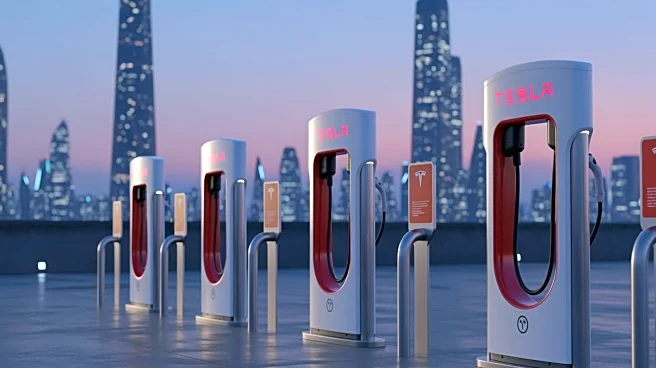What's Happening?
Tesla experienced a significant increase in sales during the third quarter of 2025, delivering 497,099 units, which marks a 7.4% year-over-year growth. This surge in sales was largely driven by the U.S.
government's decision to end electric vehicle tax credits on September 30, prompting a rush in demand. Despite the increase in sales and a revenue boost of 11.6% to $28 billion, Tesla did not achieve record profits. CEO Elon Musk had previously warned of challenging quarters ahead, and the current financial results reflect those concerns.
Why It's Important?
The end of EV tax credits in the U.S. has had a notable impact on consumer behavior, leading to increased demand for electric vehicles. This development highlights the significant role government incentives play in shaping market dynamics and consumer decisions. While Tesla's sales figures are impressive, the lack of corresponding profit growth suggests challenges in cost management or pricing strategies. This situation could influence Tesla's future business strategies and affect investor confidence. Additionally, it underscores the broader implications for the EV industry as it navigates changes in policy and market conditions.
What's Next?
Tesla may need to reassess its pricing and cost strategies to improve profitability in the absence of tax incentives. The company might also explore new markets or product innovations to sustain growth. Stakeholders, including investors and industry analysts, will likely monitor Tesla's financial performance closely in upcoming quarters. Furthermore, other EV manufacturers may face similar challenges, prompting industry-wide adjustments in response to changing government policies.
Beyond the Headlines
The shift in government policy regarding EV tax credits could have long-term effects on the adoption of electric vehicles in the U.S. It may also influence legislative discussions on sustainable transportation and environmental policies. The situation presents an opportunity for Tesla and other manufacturers to advocate for new incentives or support mechanisms to promote EV adoption.









